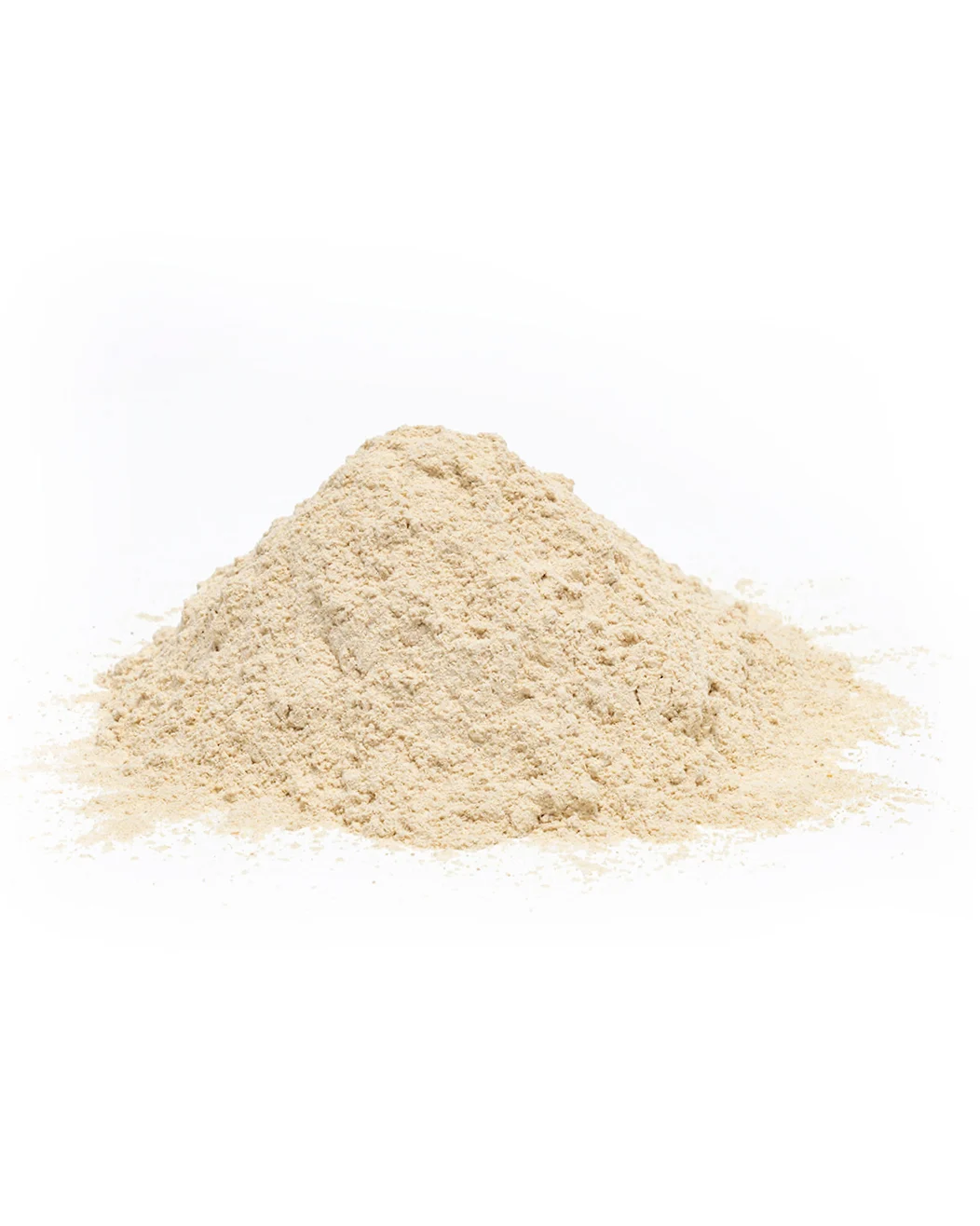Ashwagandha
Withania somnifera
Ashwagandha is a plant traditionally used in Ayurvedic medicine to promote a youthful state of physical and mental well-being.
Sourced from India
Non-GMO
Disclaimer: The information provided on this page is not a substitute for professional medical advice, diagnosis, or treatment. If you have any questions or concerns about your health, please talk to a healthcare provider.
Some studies have shown that ashwagandha supplementation supports normal testosterone levels and muscle strength.
Multiple studies have shown improvement in stress and anxiety scores after supplementation with ashwagandha.
Common side effects include sleepiness (approximately 20% of users in one study), loose stools (approximately 20% of users in one study), and gastrointestinal discomfort (approximately 10% of users in one study).
Talk to your healthcare provider if you are concerned about any side effects you experience.
FAQ
What is ashwagandha?
Ashwagandha, also known as “Indian ginseng,” “winter cherry,” and “poison gooseberry,” is an herb that is commonly used in Ayurvedic medicine. Ayurvedic medicine, also simply called Ayurveda, is a form of traditional Indian medicine that dates back to approximately 6000 BCE and relies on a natural, holistic approach to healing. In Ayurveda, ashwagandha is used as a Rasayana, a tonic that promotes a youthful state of physical and mental well-being. Ashwagandha is also in the family of herbs known as “adaptogens,” which are believed to help regulate physical, mental, and emotional stresses in the body.
The ashwagandha plant belongs to the Solanaceae, or nightshade, family of flowering plants. This means ashwagandha is related to many shrubs, trees, spices, and weeds as well as familiar foods like bell peppers, eggplants, potatoes, and tomatoes. The root of ashwagandha gives off an odor described as being similar to a horse and it is considered to be an aphrodisiac, narcotic, antimicrobial, and stimulant. The leaves, flowers, and seeds are also thought to have medicinal benefits. Ashwagandha’s suspected active ingredients include its alkaloids, steroidal lactones, saponins, and withanolides.
In what forms is ashwagandha available?
Ashwagandha is a plant whose roots, leaves, and berries can be ground and made available as a powder, tea, or essential oil. Some applications, particularly to assist in pain control, involve mashing ashwagandha root with water to turn it into a paste and applying it topically. Formulations of ashwagandha are available over the counter, however, dosage may vary depending on the method of use/ingestion.
How does Ro offer ashwagandha?
Ro offers ashwagandha in the following supplements:
For these supplements, Ro obtains ashwagandha from a non-GMO source in India that grows Withania somnifera. This root extract contains 1.5% withanolides.
Ashwagandha is one of three main ingredients in Ro’s Stress Relief supplement. The supplement consists of two capsules that should be taken with water. Each individual capsule contains 150 mg of ashwagandha root extract, for a total daily dose of 300 mg.
Other ingredients in the capsules include Rhodiola rosea root extract, phosphatidylserine, microcrystalline cellulose, hypromellose (capsule), and magnesium stearate. The Stress Relief supplement contains soy and should not be consumed by anybody with a soy allergy.
For these supplements, Ro uses KSM-66® organic ashwagandha root extract sourced from India. KSM-66® is a registered trademark of Ixoreal Biomed Inc. This root extract contains more than 5% withanolides.
Ashwagandha is one of six main ingredients in Ro’s Testosterone Support supplement. The supplement consists of four tablets that should be taken with water. Each individual tablet contains 150 mg of ashwagandha root extract, for a total daily dose of 600 mg.
Other ingredients in the tablets include maca root powder, magnesium citrate, zinc sulfate, cupric oxide, cholecalciferol, microcrystalline cellulose, dicalcium phosphate, stearic acid, croscarmellose sodium, magnesium stearate, silicon dioxide, and pharmaceutical glaze (shellac, povidone).
What are the side effects of taking ashwagandha?
The most common side effects of ashwagandha are drowsiness, fatigue, gastrointestinal discomfort, and loose stools. Rarely reported side effects include elevation of liver enzymes, fever, headache, inflammation of the stomach lining, nausea, skin rash, and swelling. The long-term effects of taking ashwagandha are unknown. Individual case studies have also revealed the following:
One 28-year-old man developed burning, itching, and discoloration of the skin while taking ashwagandha. Symptoms resolved after one month of treatment with an oral allergy medication and a topical steroid (3).
One 32-year-old woman developed an overactive thyroid while taking ashwagandha. Symptoms resolved after discontinuing use (3).
One 39-year-old man developed hemolytic anemia and abdominal pain following the ingestion of pills that were ordered from India and were labeled “ashwagandha/mucuna.” Analysis of the pills revealed 7.3 mg of lead per pill as well as traces of arsenic, chromium, and mercury. Symptoms resolved after treatment for heavy metal poisoning (15).
Two cases of heart arrhythmia were possibly associated with preparations that included ashwagandha (3).
Additional considerations
You should not take ashwagandha if you have hormone-sensitive prostate cancer, as ashwagandha may increase testosterone levels. You should also not take ashwagandha if you are pregnant, as higher doses of ashwagandha may be related to increased rates of abortion. Ashwagandha may cause the immune system to be more active, which is important to consider for those with autoimmune diseases such as systemic lupus erythematosus, multiple sclerosis, or rheumatoid arthritis. Ashwagandha may also lower your blood pressure, which is important to keep in mind if you are already on blood pressure-lowering medications.
Taking ashwagandha may affect certain lab test results. Thyroxine levels (which may be tested to evaluate thyroid function) and digoxin levels (which may be tested if you are taking digoxin) can be falsely elevated when checked by your healthcare provider. Make sure your healthcare provider knows you are taking ashwagandha before checking these lab tests.
Ro’s Stress Relief supplement contains soy and should not be consumed by anybody with a soy allergy.
